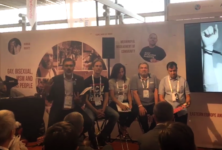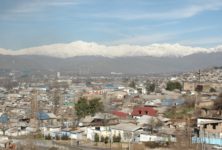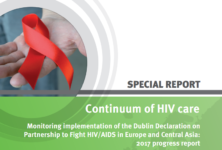Wits University researchers measured resilience in HIV patients objectively for the first time
When one thinks about chronic conditions that are commonly painful, HIV doesn’t typically spring to mind. However, more than 50% of HIV-positive individuals experience a painful condition like headache, chest pain or neuropathy, and that pain is frequently experienced as moderate to severe in intensity.
What struck researchers from the Brain Function Research Group (BFRG) at Wits University as odd was that despite this high burden of pain in HIV, a couple of papers have emerged suggesting that, having asked patients, functional interference (having difficulty with things like walking or going to work) was not as great as they might have expected. One of these papers was from the BFRG and had been completed locally in Johannesburg, South Africa.
To investigate whether pain does actually affect function in HIV (as it does in many other clinical conditions), researchers Dr Antonia Wadley, Emeritus Professor Duncan Mitchell and Associate Professor Peter Kamerman from the BFRG, based in the School of Physiology, Faculty of Health Sciences at Wits, conducted a cross-sectional study.
The results from the study, titled: Resilience does not explain the dissociation between chronic pain and physical activity in South Africans living with HIV, are published today, 13 September 2016, in the journal PeerJ.
To explain why pain may not affect function, the researchers first put it down to African patients being resilient, i.e. the ability to cope with adversity.
Explains Wadley: “No one has assessed resilience in people living with HIV and chronic pain before. We hypothesised that people living with HIV would be generally be pretty resilient, and those who were more resilient would be more active and report lower pain intensity.”
Measuring resilience in HIV-patients objectively for the first time
For the study, the researchers recruited HIV-positive patients from an HIV clinic in Johannesburg: half with chronic pain (defined as having had pain most days for at least three months) and half without. They then assessed resilience and, as well as asking patients about their activity, the researchers measured it objectively for the first time in a subset of patients using accelerometers, which are like sophisticated pedometers. They also asked the patients about their day-to-day worries.
“It turns out,” Wadley says, “that we were right on one thing, HIV-positive patients in our study were really resilient, but our hypothesis was wrong: being more resilient did not associate with being more active or having lower pain intensity. In fact, the activity results astounded us. Not only was patients’ activity not as affected as one might expect, it wasn’t affected at all.”
There was no difference in activity intensity, duration, or time spent at different intensities of activity between those with and without chronic pain. “This is something you just don’t see in other types of long term pain,” she adds.
The researchers then looked at how frequently patients worried about their health, money, food and family. “We thought that if patients were worried about money and having enough food, that pain might be relegated to a lower priority.”
They found that patients in chronic pain worried more frequently about each of these things compared to their pain-free counterparts and that health was lowest down the list.
“So it really does appear that if you are poor, pain may be relegated to a lower priority. Indeed, our analysis showed that worrying more about food associated with higher levels of activity,” says Wadley.
Going forward
The researchers also asked the patients in pain what else they worried about and who they had told about their pain.
“It turns out that HIV-related stigma is a real problem and that half the patients in pain had not told their closest friends and some not even their family about their pain, for fear that it might reveal their HIV status.”
Wadley says it thus seems that economic stresses and fear of HIV-related stigma may drive people to maintain high levels of activity, even when they are in severe pain.
“What’s not clear is whether this kind level of activity in the face of pain is helpful or harmful and that’s something we will be looking into next,” she adds.
About the researchers
Antonia Wadley is the Hillel Friedland postdoctoral fellow in the School of Physiology, Faculty of Health Sciences, Wits University. Wadley is originally a physiotherapist from the UK but now researches HIV-related pain. She obtained her PhD from Wits University where she looked at clinical and genetic risk factors for developing HIV-associated sensory neuropathy. Her research now focuses on how psychosocial factors affect the experience of pain in HIV.
Duncan Mitchell is Emeritus Professor of Physiology in the School of Physiology, Faculty of Health Sciences, Wits University and Honorary Professorial Research Fellow in its Brain Function Research Group. Before joining the Wits in 1975, he was on the faculty of the National Institute for Medical Research, London, UK, and of the Research Organisation of the Chamber of Mines of South Africa, Johannesburg. He is an Honorary Fellow and former President of the Physiology Society of Southern Africa, a member of both the UK and American Physiological Societies, a founder member of the Academy of Science of South Africa, and a Fellow of the Royal Society of South Africa. Duncan has published more than 250 papers, in the fields of thermal physiology, sleep physiology as well as pain physiology and pharmacology. His pain research spans 35 years, and mainly has concerned the pathophysiology and pharmacology of hyperalgesic pain, including muscle pain and dysmenorrhoea. His current pain research is aimed at trying to understand and manage the pain experienced by most HIV-positive patients. He was awarded the Harry Oppenheimer Fellowship in 2010 and an honorary Doctor of Science degree by Wits in 2012.
Peter Kamerman is an Associate Professor in the School of Physiology, Faculty of Health Sciences, Wits University and Head of the Pain Laboratory of the Brain Function Research Group. Kamerman’s field of research is HIV-related pain with a primary focus on the epidemiology, genetics and pathophysiology of HIV-associated sensory neuropathy. He has published widely in international peer-reviewed journals, and presented numerous invited talks and workshops at local and international conferences. Kamerman is secretary of the Neuropathic Pain Special Interest Group (NeuPSIG) of the International Association for the Study of Pain (IASP) and is president of the Pain Society of South Africa (PainSA).


 ПОИСК ПО САЙТУ
ПОИСК ПО САЙТУ  поиск по ресурсному центру
поиск по ресурсному центру 


